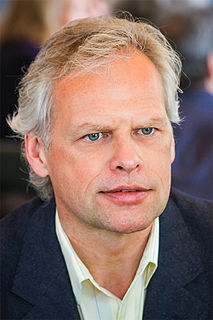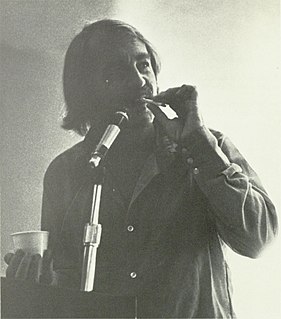A Quote by Henry David Thoreau
The finest qualities of our nature, like the bloom on fruits, can be preserved only by the most delicate handling. Yet we do not treat ourselves nor one another thus tenderly.
Related Quotes
Little Words When you are gone, there is nor bloom nor leaf, Nor singing sea at night, nor silver birds; And I can only stare, and shape my grief In little words. I cannot conjure loveliness, to drown The bitter woe that racks my cords apart. The weary pen that sets my sorrow down Feeds at my heart. There is no mercy in the shifting year, No beauty wraps me tenderly about. I turn to little words- so you, my dear, Can spell them out.
From our best qualities come our worst. From our urge to pull together comes our tendency to tear each other apart. From our devotion to a higher good comes our propensity to the foulest atrocities. From our commitment to ideals comes our excuse to hate. Since the beginning of history, we have been blinded by evil's ability to don a selfless disguise. We have failed to see that our finest qualities often lead us to the actions we most abhor, murder, torture, genocide and war.
We are completely unaware of our true nature because we identify ourselves with our body, our emotions and our thoughts, thus losing sight of our unchanging centre, which is pure consciousness. When we return to our true nature, our thoughts and perceptions no longer appear as modifications of a single substance, they come into being and subside like waves of the ocean.
We searchers are ambitious only for life itself, for everything beautiful it can provide. Most of all we love and want to be loved. We want to live in a relationship that will not impede our wandering, nor prevent our search, nor lock us in prison walls; that will take us for what little we have to give. We do not want to prove ourselves to another or compete for love.
If we affirm one moment, we thus affirm not only ourselves but all existence. For nothing is self-sufficient, neither in us ourselves nor in things; and if our soul has trembled with happiness and sounded like a harp string just once, all eternity was needed to produce this one event - and in this single moment of affirmation all eternity was called good, redeemed, justified, and affirmed.
Most of us, I believe, admire strength. It's something we tend to respect in others, desire for ourselves, and wish for our children. Sometimes, though, I wonder if we confuse strength with other words—like 'aggression' and even 'violence'. Real strength is neither male nor female; but it is, quite simply, one of the finest characteristics that a human being can possess.
Without our fully realizing it, flowers would become for us an expression in form of that which is most high, most sacred, and ultimately formless within ourselves. Flowers, more fleeting, more ethereal, and more delicate than the plants out of which they emerged, would become like messengers from another realm, like a bridge between the world of physical forms and the formless.
Conversation in its happiest development is a link, equally exquisite and adequate, between mind and mind, a system by which men approach one another with sympathy and enjoyment, a field for the finest amenities of civilization, for the keenest and most intelligent display of social activity. It is also our solace, our inspiration, and our most rational pleasure. It is a duty we owe to one another; it is our common debt to humanity.


































